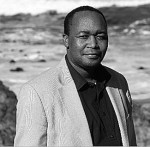Title
Subhead
When I was invited to participate in Carnegie Hall’s regional surveys of Chinese, Japanese, and Latin American festivals in years past, I didn’t hesitate to accept because there were so many fine composers to choose from in those regions. But agreeing to take part this fall in Carnegie’s Ubuntu—Music and Arts of South Africa festival presented a great challenge because I had only played or conducted two South African composers and had no idea who else should be considered. Then, completely by coincidence, a British conductor and new-music publicist suggested that Robert Fokkens, a South African teaching at the University of Cardiff, send me some music. I was greatly impressed with what he sent, and Fokkens subsequently—and very generously—recommended many other South Africans writing in different styles. After receiving samples from them, I was confident that the New Juilliard Ensemble could play a strong role in the festival. Our concert, with music by seven South Africans, takes place in Paul Hall on November 3.
Body
The Ubuntu festival is a monthlong (October 8-November 5) multimedia, multivenue celebration of South Africa’s rich culture. Our concert will be a good sampler of new concert music there. Of the seven composers whose work we will be playing, five are white and two are black, a nice cross-representation in a nation that so recently threw off apartheid. The composers are Michael Blake; Fokkens (whose wife, Nancy Johnson, incidentally, is a Juilliard viola and N.J.E. alum); Paul Hanmer; Andile Khumalo; Bongani Ndodana-Breen; Clare Loveday; and Kevin Volans. Fokkens and Ndodana-Breen have written new works for the concert and almost all the pieces on the program are some sort of premieres.
Looking toward writing this article and the program notes, and knowing my own ignorance about South Africa’s compositional world, I sent 15 questions to all seven composers. Their answers, most of which were quite similar, yielded insights about and frustrations with their world. Asked about funding, they lamented the paucity of government support and the small and insular culture of private organizations that stick to the conservative composers they know and avoid new ideas. Composers have very few performing forces available, they indicated, though several saw encouraging signs of growth. There are no groups like the New Juilliard Ensemble. Music societies also are rarities. The South African section of the International Society for Contemporary Music is barely functional and does not embrace new ideas. Orchestras play hardly any South African composers, and black composers even more rarely. The few university composition programs are generally conservative and suffer from inferior teaching because faculty members tend to see new ideas as threatening. Most of them dismissed SAMRO, the South African musical rights organization and one of the sole sources of commissions, as in-grown: a poor relationship with a board member more or less guarantees rejection of commission projects. Some private funding is available to composers with good connections; there is no tax-deduction system for commissioning as there is here. And even the act of circulating music is difficult because South Africa has no publisher or Music Information Center, as many countries do. Understandably, no one can live on the income from composing, although some commercial work can be lucrative.
Of course, there are some similarities to the situation in the United States, and they’re particularly striking if you compare South Africa today with the U.S. in the late 19th century. In each case, the musical elite only cared for German-Austrian music. The neglect of American composers in that era also resulted in part from the upper stratum’s compulsion to demonstrate their musical sophistication by knowing—and looking no further than—the core repertory. For composers, success at home depended upon recognition abroad, as is true in South Africa now. Composer Clare Loveday recounts how a single performance of her music in Vienna transformed her status at home. In both countries, conservative forces of religion—Afrikaner Calvinism, some American evangelical groups—slowed artistic development.
Yet not all the composers’ comments were negative. Loveday’s family has been there long enough so that she does not long for the greener pastures of Europe. Ndodana-Breen, while sharing the concerns of the others, sees conditions as dramatically improved since the time when black composers had absolutely no possibility of support. He also noted that composers who write for the black population’s incredibly lively choral culture can do well. Several composers acknowledged that a government facing immense challenges of poverty, health, and crime, cannot and perhaps should not devote much energy to high culture at this time.
Nevertheless, they keep working and are beginning to show the world how much lies at the tip of Africa, where racial conflict once dominated all the news. Some of them are getting publishers and performances abroad and finding new audiences and support at home. The standards of performers and teachers are rising. With some good fortune and a lot of work, the optimism of the few may become the reality of many more.











